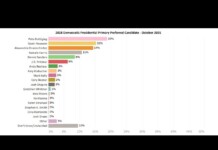Do you prefer to eat breakfast prior to your morning workout, or do you skip breakfast altogether? If you work out later in the day, have you eaten enough throughout your day to fuel your fitness regime? These are valid questions, since eating properly is just as important to your health as lifting weights and doing enough cardio-vascular training.
According to findings reported in the American Journal of Physiology: Endocrinology and Metabolism, eating first actually helps the body burn more calories during exercise. Not just that, but compared to skipping breakfast, eating breakfast 1-1 ½ hours before exercise increases the speed at which you digest, absorb, and metabolize carbohydrates even after exercising. In short, a substantial morning meal consisting of such nutritional gems as steel cut oatmeal, low-fat yogurt, milk, eggs, and fresh fruit will not only fuel ambitious morning workouts, but it will also keep you burning calories more efficiently all day long.
Similarly, if you’re exercising later in the day, it’s just as important to eat properly throughout the day if you want to get the most out of your workouts. Whether you’re exercising during your lunch break, or hitting the gym after work, you need the right nutritional plan. A substantial breakfast and healthy snacks every two hours should ensure that you will have enough energy to fuel whatever exercise you do during the day. Hint: a snack or light meal an hour or two before you hit the gym would be great.
Eating 15-30 minutes after your workout is just as important as fueling your body prior to exercising. During exercise, muscles use up stored glucose (called glycogen) and you’ll feel shaky and tired. Endurance sports such as running use up more glycogen than resistance activities like weightlifting. Restoring the proper nutritional balance after exercise revives energy levels, reduces fatigue, and promotes muscle recovery. Protein, carbohydrates and healthy fats are needed to return the body to homeostasis.
According to research published in 2017, as few as 9 grams of milk protein may be enough to facilitate muscle building and recovery after exercise. Also, on the list of easily assimilated protein rich foods for post workout meals are Greek yogurt, cottage cheese, kefir and eggs.
Healthy fats known as omega-3 fatty acids found in salmon and tuna help boost the synthesis of muscle proteins and increase the size of muscle cells. Other evidence suggests that oil drawn from these fatty fish may ease muscle soreness following resistance training.
Consuming carbohydrates as part of a post workout snack helps replenish depleted glycogen stores and boosts the immune system. Sweet potatoes, whole grains, and fruits contain high levels of healthy low glycemic index carbohydrates. Quinoa is a gluten free option usually consumed as a grain. It is high in fiber and rich in protein (8.14/cup) as well.
















